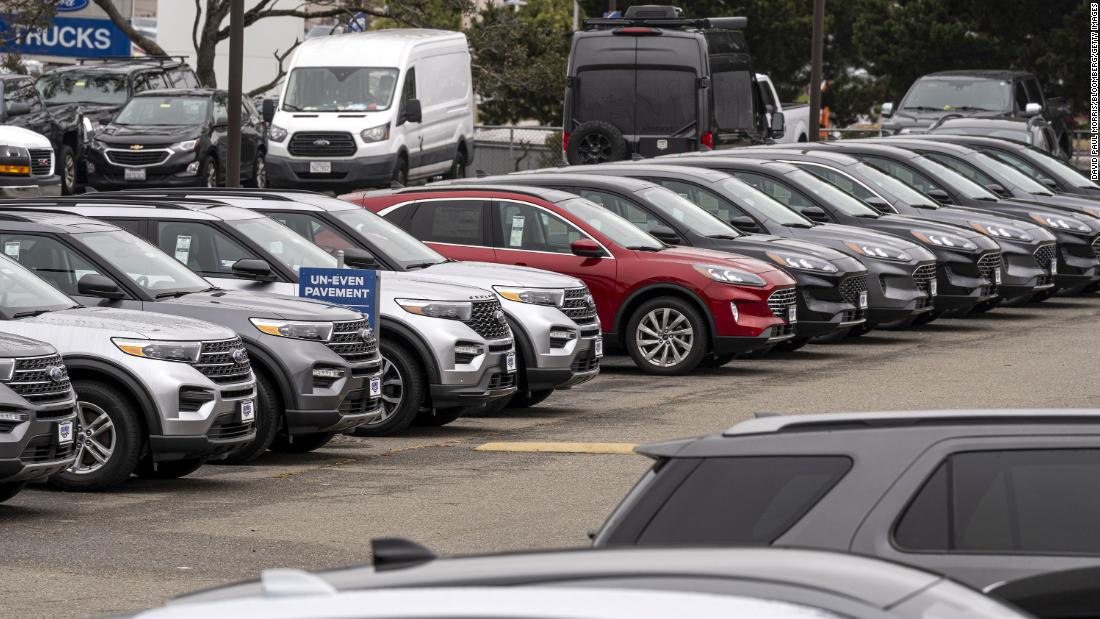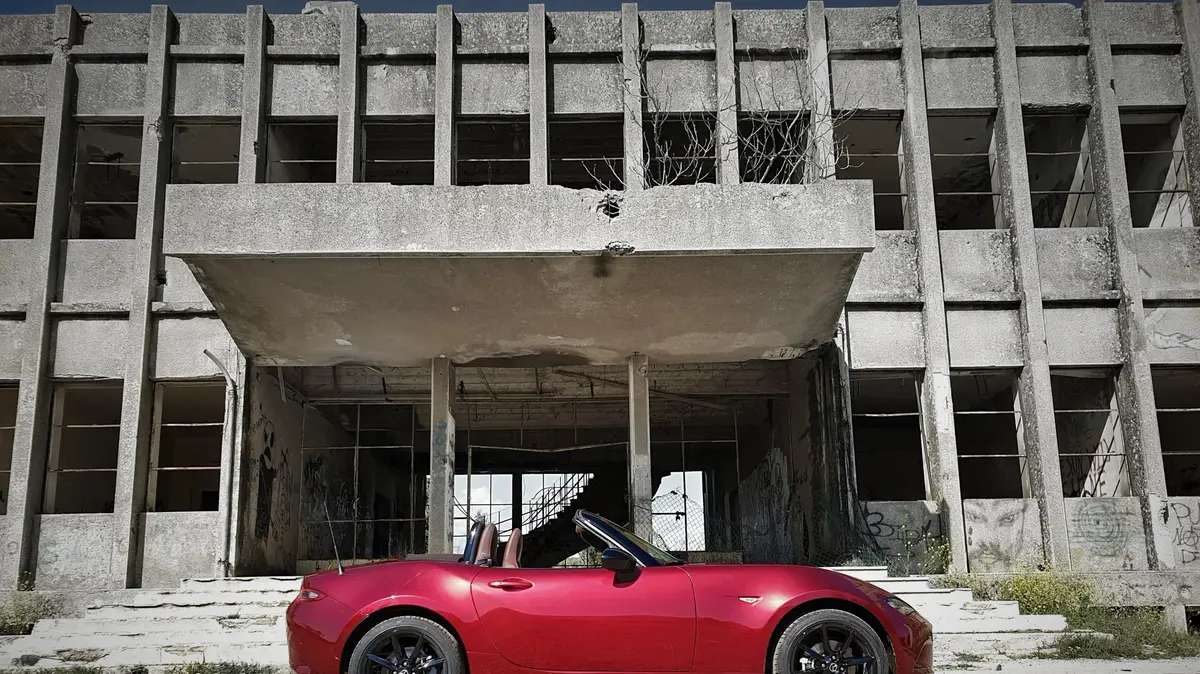Why did the price of cars rise in the US?
2:16
New York (CNN Business) -
Perhaps America's key inflation metric, the Consumer Price Index (CPI), should be renamed the Auto Price Index.
The CPI reached its highest level in 13 years in May, with prices increasing by 5% compared to the previous year.
But about a third of that increase was solely due to the price of used vehicles.
Second-hand vehicle prices soared 30% in the 12 months to May, just below the record-breaking one-year increase in used vehicle prices recorded in 1975.
According to Edmunds, an auto information source, the median price for used vehicles reached $ 26,500 in June, 27% more than a year ago, while the median price for new vehicle transactions is $ 41,000. , 5% more, practically the same as the initial average price of US $ 41,500.
Record prices for cars, both used and new, are more than just a nuisance - it's an economic problem that weighs heavily on household budgets.
About 40% of American households make some type of vehicle purchase each year, and this year could be even higher due to pent-up demand for purchases delayed in 2020.
Why are second-hand vehicle prices going up?
Car prices have risen for a variety of reasons, but they all come down to two factors: high demand and limited supply.
advertising
Used car prices are hit especially hard because car rental companies, which faced a near-stop in demand last year, sold about a third of their fleets to raise enough money to survive the pandemic.
That flood of sales last spring sent used car prices down slightly, which explains the large percentage increases in the 12-month comparison.
Signs that the 2020 recession may be over
But with the current rebound in travel, car rental companies are suddenly faced with a shortage of rental cars and aren't selling the ones they have even as demand has skyrocketed.
Millions of people have found jobs this year, and millions more who worked from home return to the office, fueling the need for vehicles.
And many shoppers are making purchases that they planned to make last year but delayed due to uncertainty about the pandemic.
New car sales to US consumers set a record, surpassing 7 million vehicles in the first half of the year, according to JD Power.
Record prices for new cars are also a factor that pushes some buyers who would prefer new vehicles to consider second-hand ones.
Why Are New Car Prices Rising
New car prices have also risen largely due to the existing shortage of computer chips.
Dealer inventory has fallen to historically low levels.
The global chip shortage is going from bad to worse and we should be concerned
Lack of new vehicle inventory is another reason car rental companies are unable to purchase the replacement vehicles they want and are sticking with their existing fleets.
Another factor driving up median car prices: car buyers' desire to purchase more expensive trucks and SUVs, rather than less expensive sedans.
Consumers also want more expensive features, such as automatic braking and lane departure warnings, which also drive up prices.
Inflation on the rise
New and used car prices typically represent about 7% of the CPI, but generally don't move the top figure much because they don't experience big price swings, said Jonathan Smoke, chief economist at Cox Automotive.
"The prices of second-hand vehicles tend to go up about 1% per year," he said.
"It's definitely contributing a lot more to inflation right now."
Rising prices for new and used cars are an important part of the inflation reading, given how much Americans spend each year on cars - more than $ 600 billion annually, Smoke said.
He and other economists believe this is a temporary spike and that as prices stabilize, used car prices will start to decline later this year.
"I'm not saying there will be a correction," he says.
"But it seems that we are leaving behind the imbalance that created the frenzy this spring."
The US Federal Reserve expects to raise interest rates in 2023. This is how it would impact you
That's why the Federal Reserve shouldn't hit the brakes to combat high inflation - it will start to back off on its own, said Mark Zandi, chief economist at Moody's Analytics.
"It would be a policy error if the Federal Reserve took its foot off the monetary accelerator because of these inflation readings," he said.
"It is temporary. It will not last. It will fall again quickly."
Price increaseAutomobiles









/cloudfront-eu-central-1.images.arcpublishing.com/prisa/2C5HI6YHNFHDLJSBNWHOIAS2AE.jpeg)



